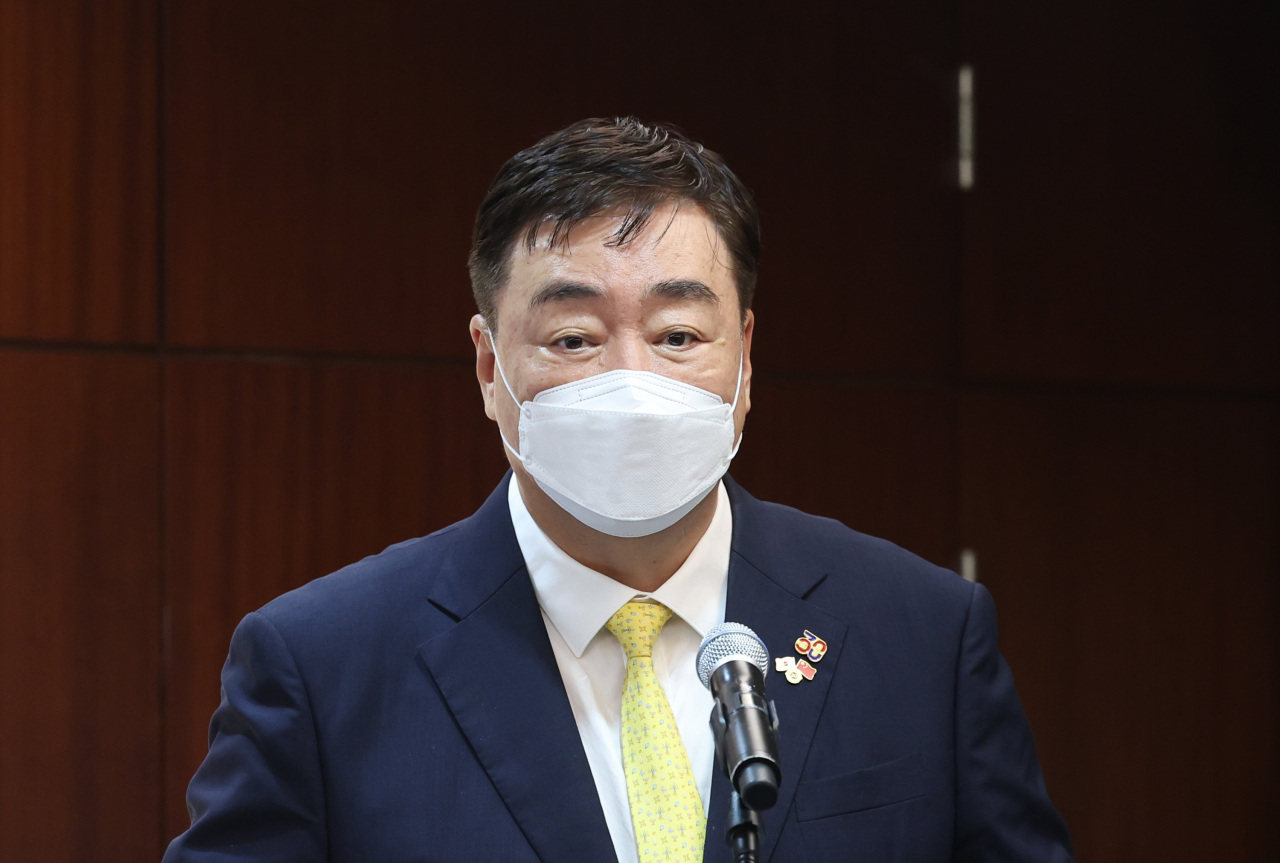 |
Xing Haiming, the Chinese ambassador to Korea, delivers a congratulatory speech at a forum to celebrate the 30th anniversary of diplomatic relations between Korea and China on Tuesday in Seoul. (Yonhap) |
Chinese Ambassador to South Korea Xing Haiming said relations between South Korea and China are declining, but that they could be solved by developing a mature, independent and stable relationship while preserving the core interests of the two.
“The current situation is complex and serious. Relations between China and South Korea have entered a new phase,” Xing said at a forum on Tuesday to celebrate the 30th anniversary of Korea-China relations in Seoul.
He admitted that the mutual affinity between the two countries is declining. “But, I believe that is temporary. There is no structural contradiction between China and Korea. There‘s no conflict that can’t be solved.”
“It is necessary to develop a mature, independent and stable relationship while maintaining the core interests between the two countries,” he said. “Looking back on the last 30 years, the two countries have advanced together, despite many difficulties and hardships, because they had the initial intention of establishing diplomatic relations.”
He urged the younger generation to “take a closer look at the enormous benefits that the two countries’ cooperation could bring and deal with the disputes with mutual understanding and inclusion.”
In a keynote speech at the forum, Park Chul-un, a key aide to former President Roh Tae-woo, talked about the direction of developmental and practical tasks for the next 30 years of Korea-China relations as “neighbors that cannot move.”
“I think we should sympathize with each other and realize the historical necessity for the two countries to work together,” he said.
“Regarding security and diplomacy, it is important to establish a new principle of independent equality based on mutual respect,” Park said. “In the economic and trade sectors, Korea should diversify its trade and investment supply chain and reduce its unilateral dependence on China.”
He believes expanding mutual positive perception and a cultural consensus is very important.
Park said South Korea should persuade China and the US to redeploy tactical nuclear weapons until North Korea gives up its nuclear arsenal.
“If that does not work, it should persuade (the two nations) of the inevitability of independent nuclear development,” Park said.
“When both the South and the North have nuclear weapons, a balance of deterrence can be achieved, peace and cooperation can be made, and, further, a negotiation to dismantle (the North’s) nuclear program is possible,” he said.
Park said it does not make sense for South Korea to talk about bold initiatives and support without nuclear weapons while the North has them.
“What the North hated the most during the Lee Myung-bak administration was ‘Vision 3,000: Denuclearization and Openness.’ After (we) told the North that we would help to increase per capita GDP to $3,000 to help ease poverty, the relationship with the North deteriorated,” he said.
By Shin Ji-hye (
shinjh@heraldcorp.com)








